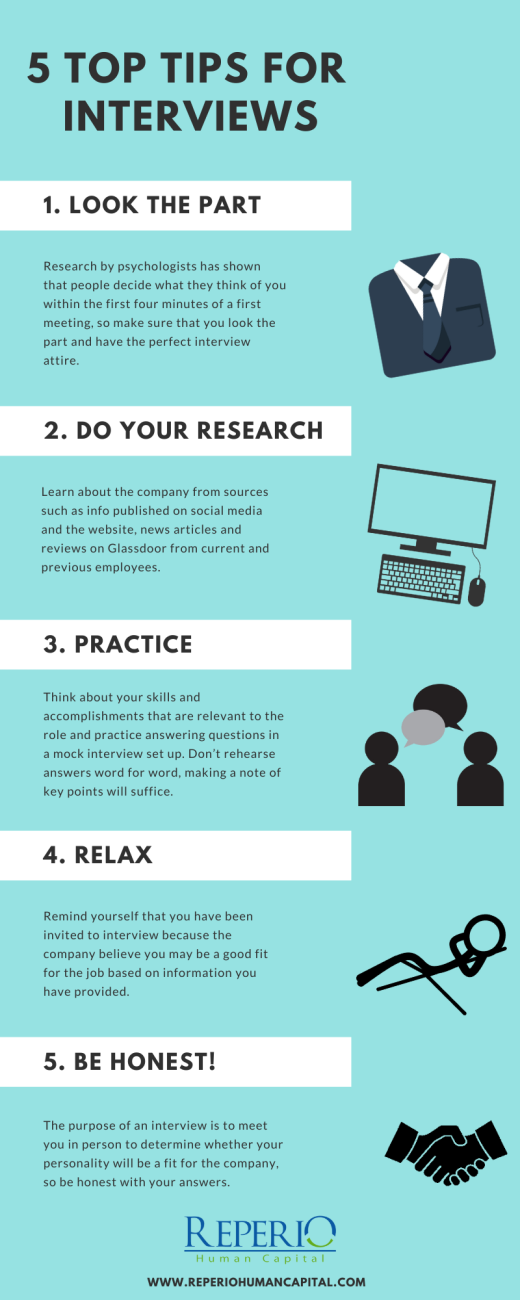
New research conducted by CV Library found that 61.4% of under 18’s and 62.5% of those aged 18-24 are scared by the job seeking process. A major fear for job seekers is interviews with 9.4% avoiding turning up to an interview for fear of the unknown, 42.4% afraid of attending interviews and 39.9% are afraid of having to do an interview test or task.
Therefore, Reperio compiled a list of top tips for job seekers who are preparing for interviews.

1. Look the part
Research by psychologists has shown that people decide what they think of you within the first four minutes of a first meeting, so make sure that you look the part and have the perfect interview attire. This will also help you feel more confident in your ability to get the job; looking your best will help make you feel your best!
2. Do your research
Learn as much about the company as you can – not just information the company is publishing on social media and their website, but also news articles, word of mouth and reviews on Glassdoor from current and previous employees.
3. Practice, practice, practice
Think about your skills and accomplishments that are relevant to the job and practice answering questions in a mock interview set up. Don’t rehearse answers word for word, making a note of key points will suffice.
4. And relax…
Remind yourself that you have been invited to interview because the company believe you may be a good fit for the job based on the information provided in your CV.
Be aware of your body language and how quickly you are speaking, when people are nervous, they tend to fidget and speak quicker.
5. Honesty is the best policy
The purpose of an interview is to meet you in person to determine whether your personality will be a fit for the company, so be honest with your answers. It is also a good idea to incorporate stories in your answers because this will help to get your personality across to the interviewer.
If you are asked ‘What is your biggest weakness?’ be as honest as you can without ruining your chances of getting the job. You could put a positive spin on your answer, for example ‘I am not the strongest public speaker, but I am actively putting myself in situations where I have to speak in public to get more experience to improve this weakness.’
Over to you!
When it comes to the end of the interview, you will normally be given the opportunity to ask questions. This is a great chance to ask an interesting question to ensure the interviewer remembers you and you stand out among the crowd. You could ask the interviewer something about their job e.g. 'What is the hardest part of your job?' or 'Why did you decide to take a job with the company?'
Written by Michelle Corry